Unlicensed and Unregulated Flights Endanger Safety, Trust, and the Aviation Industry’s Reputation
As private aviation continues to grow in popularity due to its convenience and flexibility, a significant and often overlooked threat is emerging that jeopardizes the integrity of the entire aviation sector: illegal private jet operations, commonly referred to as “grey charters.” These unauthorized flights operate without the necessary certification, regulation, or oversight, which can result in serious safety hazards and undermine consumer trust. Grey charters present multiple risks. For one, passengers on these flights often lack the protections and assurances that come with certified operations, including safety standards, qualified crew members, and adherence to maintenance protocols. When circumventing official regulations, these operators may use substandard aircraft or untrained personnel, ultimately jeopardizing passenger safety. Moreover, the rise of grey charters disrupts fair competition in the aviation market. Licensed operators who invest time and resources into complying with regulations find themselves at a disadvantage against unscrupulous competitors who can undercut prices by avoiding the costs associated with compliance. This not only harms legitimate businesses but also creates an uneven playing field that could diminish overall service quality within the industry. Looking ahead to 2025, as demand for private flights continues to rise, the risk that unscrupulous operators will attempt to bypass established regulations is likely to increase. This trend poses significant challenges for regulatory bodies, who are tasked with ensuring public safety and maintaining industry standards, but may struggle to keep pace with the innovative tactics employed by grey charter operators. In summary, the proliferation of unlicensed and unregulated flights threatens not only the safety of passengers but also the trust in the aviation industry and the livelihoods of legitimate operators. It is crucial for all stakeholders, including regulators, industry leaders, and passengers, to remain vigilant and advocate for stricter enforcement of aviation regulations to protect the integrity and reputation of the sector.
What Are Illegal Private Jet Operations?
Illegal private jet operations occur when an aircraft is used for commercial purposes—carrying paying passengers—without the proper air operator certificate (AOC), insurance, regulatory approvals, or qualified crew. These flights often masquerade as private, non-commercial trips to avoid legal scrutiny and costs.
Common forms include:
- Private aircraft owners offering unauthorized charters to friends, acquaintances, or businesses.
- Operators advertising flights publicly without proper certification.
- Brokers or booking platforms failing to verify the legal status of aircraft and operators.
Why Are Illegal Jet Operations a Threat?
1. Safety Compromised
Licensed air charter operators must adhere to strict maintenance standards, pilot training, safety management systems, and regulatory oversight. Illegal operations bypass these safeguards, increasing the risk of:
- Inadequate aircraft maintenance
- Unqualified or undertrained pilots
- Lack of proper insurance coverage
- No safety management protocols
Passengers may not even be aware they’re boarding an illegally operated flight until something goes wrong.
2. Unfair Competition
Illegal operators undercut legitimate charter businesses by avoiding the significant costs of regulatory compliance, training, and safety investments. This creates an uneven playing field, hurting ethical operators and damaging the overall health of the private aviation sector.
3. Reputational Damage to the Industry
High-profile accidents involving illegal jet operations tarnish the entire industry. Public confidence suffers when stories emerge of unauthorized flights ending in tragedy, even if most private aviation providers operate legally and safely.
4. Legal and Financial Risks for Passengers
Passengers on illegal flights face potential legal consequences and financial loss. In the event of an accident, insurance may be void, and legal protections are limited. Ignorance is no defense if an unauthorized operator is chosen.
Real-World Examples of the Danger
Recent incidents globally have highlighted the deadly consequences of illegal private flights, from fatal crashes to high-risk emergency landings. Investigations consistently reveal that many of these tragedies could have been avoided with proper licensing, maintenance, and qualified crews.
Industry Efforts to Combat the Problem
Regulators and industry associations are taking steps to tackle illegal operations, including:
- Public awareness campaigns by organizations like the European Business Aviation Association (EBAA) and National Business Aviation Association (NBAA).
- Encouraging passengers to verify operator credentials and AOC status.
- Crackdowns on online platforms advertising unauthorized charters.
- Collaborations with law enforcement to identify and prosecute illegal operators.
What Passengers and Businesses Must Do
Before booking any private flight:
✅ Confirm the operator holds a valid AOC.
✅ Request proof of insurance coverage for commercial operations.
✅ Verify the crew’s qualifications and experience.
✅ Be wary of “too good to be true” pricing.
✅ Use reputable brokers or platforms that vet operators properly.
Conclusion: Protecting the Integrity of Private Aviation
Illegal private jet operations not only jeopardize the safety of passengers but also erode the trust and reputation of the entire aviation industry. While flying privately offers unparalleled advantages, such as convenience and personalized service, compromising safety regulations can lead to severe and dangerous consequences. It’s crucial that all stakeholders, regulators, operators, and passengers take proactive steps to identify, report, and eliminate unauthorized flights that operate outside legal parameters. The future of private aviation hinges on more than just the allure of luxury travel; it demands rigorous compliance with existing safety regulations, adherence to ethical business practices, and a relentless commitment to ensuring passenger safety. By fostering a culture of accountability and transparency, the aviation community can work together to maintain the high standards expected in this sector, preserving its integrity and ensuring a safe flying experience for everyone involved.















